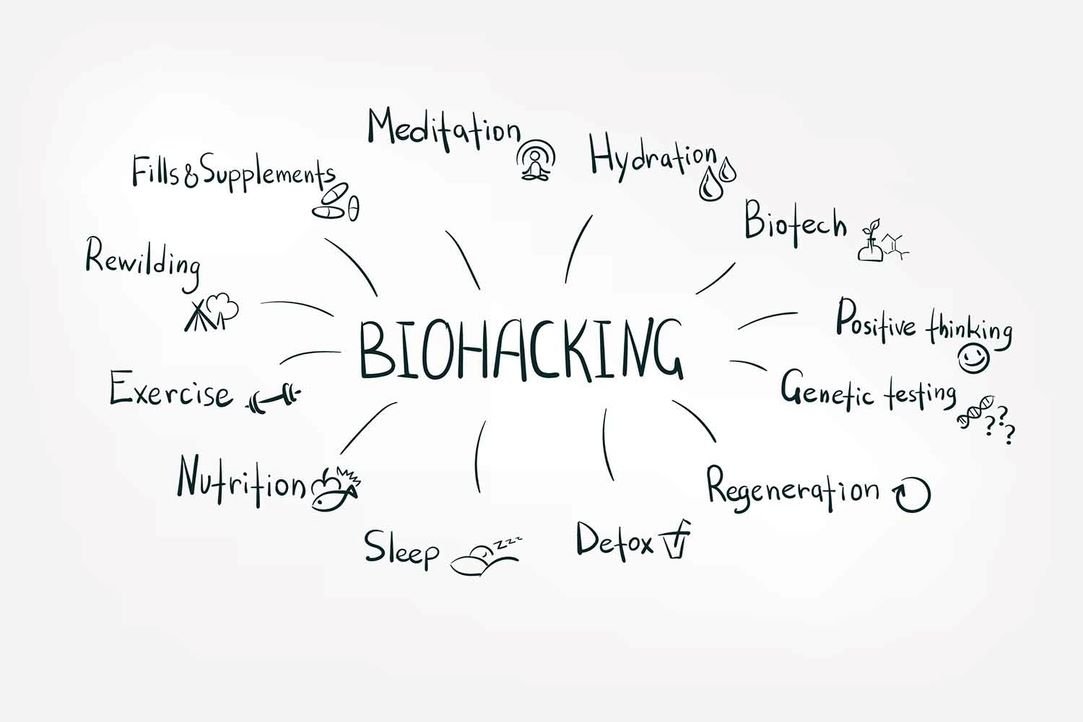The Power of 3 Simple Biohacks in a Daily Exercise Program and Longevity
Introduction
In the world of modern wellness and performance, "biohacking" is more than a trend—it's a science-backed strategy to optimize your body, brain, and biology for longevity. When incorporated into a consistent daily exercise routine, even the simplest biohacks can amplify results and support healthy aging.
Coach Ray Traitz, an experienced strength and wellness coach, has been actively experimenting with these simple yet powerful strategies. By integrating them into his own life and his clients’ routines, he’s witnessed remarkable improvements in energy, performance, and long-term vitality.
What Are Biohacks?
Biohacks are small, intentional adjustments to daily habits, often informed by biology, neuroscience, and nutrition. These tweaks can yield exponential improvements in recovery, hormone balance, cellular health, and more.
Let’s dive into three powerful biohacks Coach Ray Traitz and leading scientists recommend for better fitness, recovery, and longevity:
Biohack #1: Cold Exposure (Cryotherapy or Cold Showers)
Biohack #2: Morning Sunlight Exposure
Biohack #3: Intermittent Fasting (Time-Restricted Eating)
Insights from Leading Researchers
Dr. Rhonda Patrick (Ph.D., Biomedical Science)
Cold Exposure for Hormesis: Cold stimulates norepinephrine and mitochondrial biogenesis, enhancing fat loss and resilience.
Sunlight & Vitamin D: Early sunlight regulates circadian rhythm, boosts serotonin, and supports immune balance.
Intermittent Fasting Benefits: Improves metabolic flexibility, reduces inflammation, and enhances autophagy (cellular repair).
Dr. David Sinclair (Professor of Genetics, Harvard Medical School)
Fasting & Longevity Genes: Time-restricted eating activates sirtuins and promotes DNA repair.
Cold Thermogenesis: Supports brown fat activation, which enhances calorie burn and insulin sensitivity.
Light Exposure Management: Morning light improves sleep-wake cycles and mitochondrial health.
Dr. Andrew Huberman (Neuroscientist, Stanford University)
Morning Light & Cortisol Rhythm: Enhances alertness and reduces nighttime insomnia.
Cold Exposure for Mood & Energy: Increases dopamine levels by up to 250%, elevating mood and motivation.
Fasting & Brain Performance: Supports BDNF production, improving learning, memory, and mood regulation.
3 Real-World Case Studies
Cold Exposure & Inflammation (Dr. Patrick)
Participants exposed to 11 minutes per week of cold water immersion showed a 30% decrease in systemic inflammation and improved exercise recovery.
Time-Restricted Eating & Aging (Dr. Sinclair)
Subjects who followed an 8-hour eating window for 12 weeks showed improved insulin sensitivity, weight loss, and reduced markers of aging.
Sunlight & Sleep Patterns (Dr. Huberman)
In a study of adults with disrupted sleep, 10 minutes of morning sunlight daily for 2 weeks restored healthy circadian patterns and reduced depression symptoms by 20%.
Coach Ray Traitz’s Biohacking Approach
Coach Ray integrates these biohacks seamlessly into training plans, including:
Cold showers after training sessions to improve recovery and reduce stress.
Daily morning outdoor walks for sun exposure and mindfulness.
Custom fasting protocols tailored to each client’s goals and metabolic type.
His approach is rooted in science, lifestyle balance, and practical, real-world application. Clients often report better sleep, increased motivation, body composition improvements, and enhanced mental clarity within just a few weeks.
Why Work with Coach Ray Traitz?
If you’re ready to level up your health, energy, and lifespan with simple, strategic habits, Coach Ray Traitz can guide you. With years of hands-on experience and a deeply personalized coaching style, Ray ensures your journey is sustainable, effective, and enjoyable.
Contact Coach Ray Traitz at amrapfitness@hotmail.com to begin your transformation.
Resources
Patrick, R. (FoundMyFitness). "Cold Stress and Resilience."
Sinclair, D. (2019). Lifespan: Why We Age—and Why We Don’t Have To.
Huberman, A. (Huberman Lab Podcast). "The Science of Sleep, Sunlight, and Hormones."

